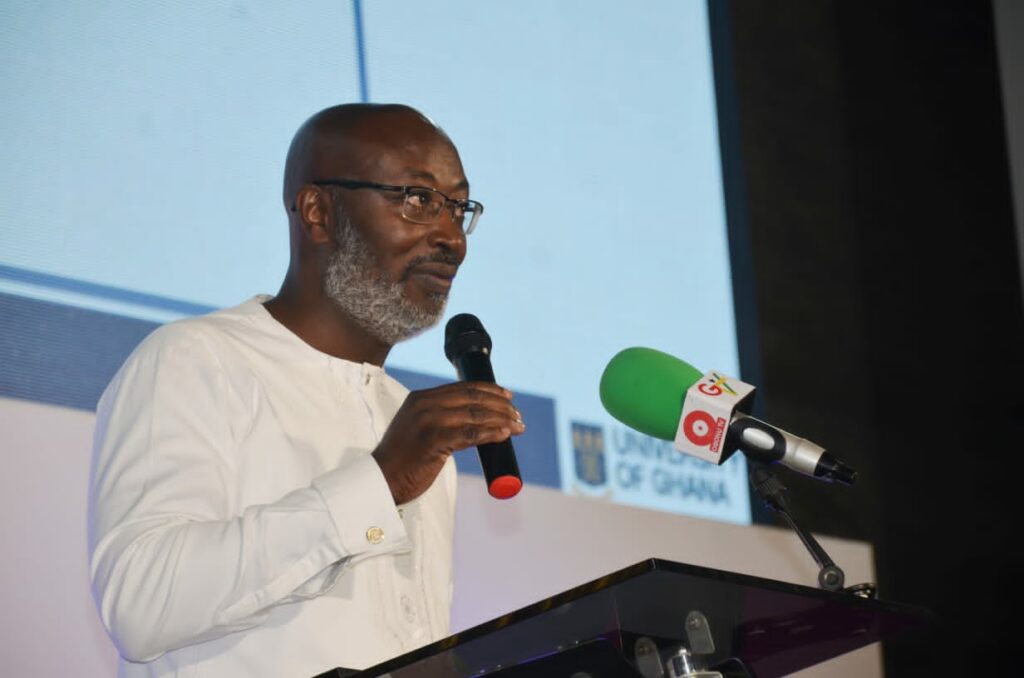Ghana lacks genetic programmes to diagnose rare diseases – Prof Ofori-Acquah

Professor Solomon Fifi Ofori-Acquah, Director, Ghanaian Genome Project, says Ghana does not have genetic programmes to diagnose rare diseases, and to identify mutations responsible for childhood cancers.
He said over one per cent of all babies with the Sickle Cell Disease had one parent who was negative for the sickle cell mutation, non-paternity might be assumed wrongly to be the reason for the phenomenon in most cases.
Prof Ofori-Acquah was speaking at the launch of the Ghanaian Genome (GhGenome) Project in Accra.
Daasebre Ayimadu Kantomamto, the Okyeman Gyasehene and Kwabenghene, launched the Project on behalf of Okyenehene Osagyefo Amotia Ofori Panin.
The GhGenome Project is a genetics health awareness initiative to educate the Ghanaians about the importance of genetics in health, wellbeing and diseases.
The project is focused on four main areas: a nationwide public lecture series on the Ghanaian Genome; an in-country free screening of genetic diseases specifically for sickle cell conditions, breast, and prostate cancers.
The rest are a postgraduate genetics training programme- including the first of-a-kind MSc Genetic Counselling programme which has already begun; and the sequencing of the DNA of 1,000 Ghanaian children with severe genetic disorders.
He said most Ghanaians recognized Deoxyribonucleic Acid (DNA) as a basis of their nationality and that physical traits were genetically determined.
The Director said over 400 children were diagnosed with a variety of cancers in Ghana every year, most of the cancers had a genetic component, which were currently not able to decode in the country, hence samples were sent overseas for analysis.
He said it was widely known that inheritance of one copy of the sickle cell mutation from each parent caused sickle cell disease.
However, it is largely unknown that inheritance of one copy of the sickle cell mutation and one copy of a thalassemia mutation also causes sickle cell disease
Prof. Ofori-Acquah said the lack of genetic testing in Ghana meant a death sentence for many children diagnosed with childhood cancers.
He said there were a lot of people suffering because as a country “we have not fully developed our capacity to diagnose these diseases.”
The Director said the project was targeting all Ghanaians to raise their awareness of genetic health.
However, he said they were particularly interested in engaging traditional leaders because they were the custodians of the country’s heritage, and they considered the Ghanaian DNA as the most basic of all the heritage.
Prof Ofori-Acquah said the second group they were interested in were the youth because they were the ones that would benefit most from knowing their genetic status, especially as it pertained to reproductive health, and risks to diseases.
“The third group are healthcare workers because of their critical role in implementing genetic medicine,” he said.
He said all Ghanaians would benefit from knowing their risk of developing genetic disorders themselves, and to potentially passing on disease-causing genes to their offspring.
The goal of the project is to sensitise Ghanaians on genetics and genetic health, increase awareness of common genetic disorders, advocate for individuals to know their genetic health status and improve access to genetic health services in Ghana.
Prof. Nana Aba Appiah Amfo, Vice-Chancellor, University of Ghana, said the calendar of activities starts with the Ga Homowo festival, where they would move on to grace the shores of Cape Coast and Anloga, in the Central and Volta regions, respectively.
We would continue to touch the plains of Wa and Tamale in the Upper West and Northern regions, and then to the magnificent trees in the forests of Berekum and Kyebi in the Bono and Eastern regions respectively, and finally to pay homage to the garden city of Kumasi in the month of December, Akwasidae Kese, she said.
She said the roadmap revealed how deliberately successful the project had been in engaging traditional leaders.
The Vice-Chancellor said it was indeed the duty as Ghanaians to help decode the DNA that “we carry, to better understand our risks of developing many diseases including sickle cell disease, breast cancer and prostate cancer.”
She said the GhGenome as mentioned earlier was housed in the West African Genetic Medicine Centre; (WAGMC), which was one of three world bank funded Centres of Excellence at the University.
Prof. Appiah Amfo assured stakeholders of the University’s commitment to help the project accomplish its goals.
“I expect GhGenome to integrate all its activities with the wider University community, with the same zeal that it has successfully reached out to traditional leaders to get them involved with this project,” she added.
She said the integration with the University would be easy to do as the four components of GhGenome fit squarely into her vision.
Source: GNA
